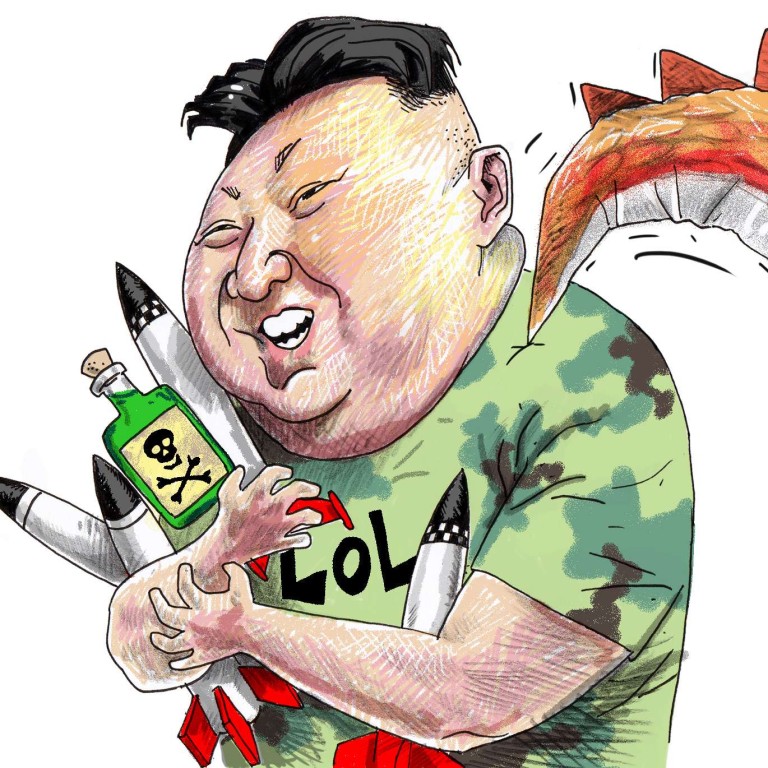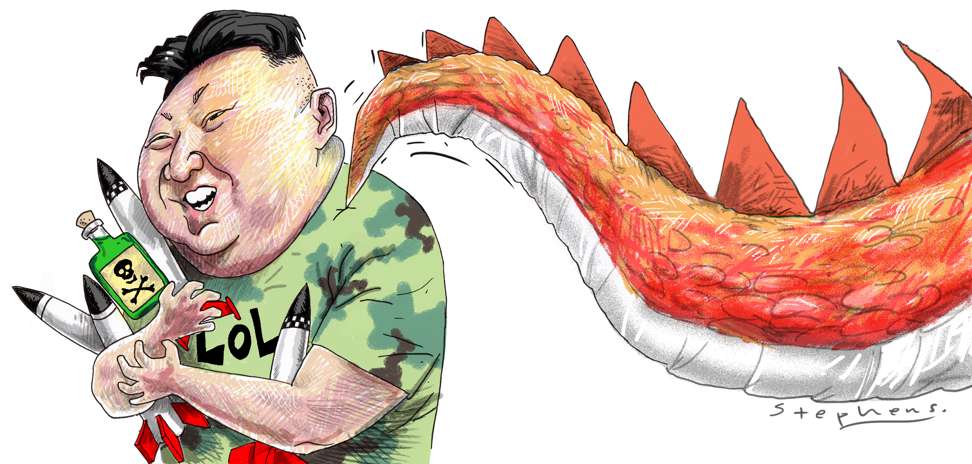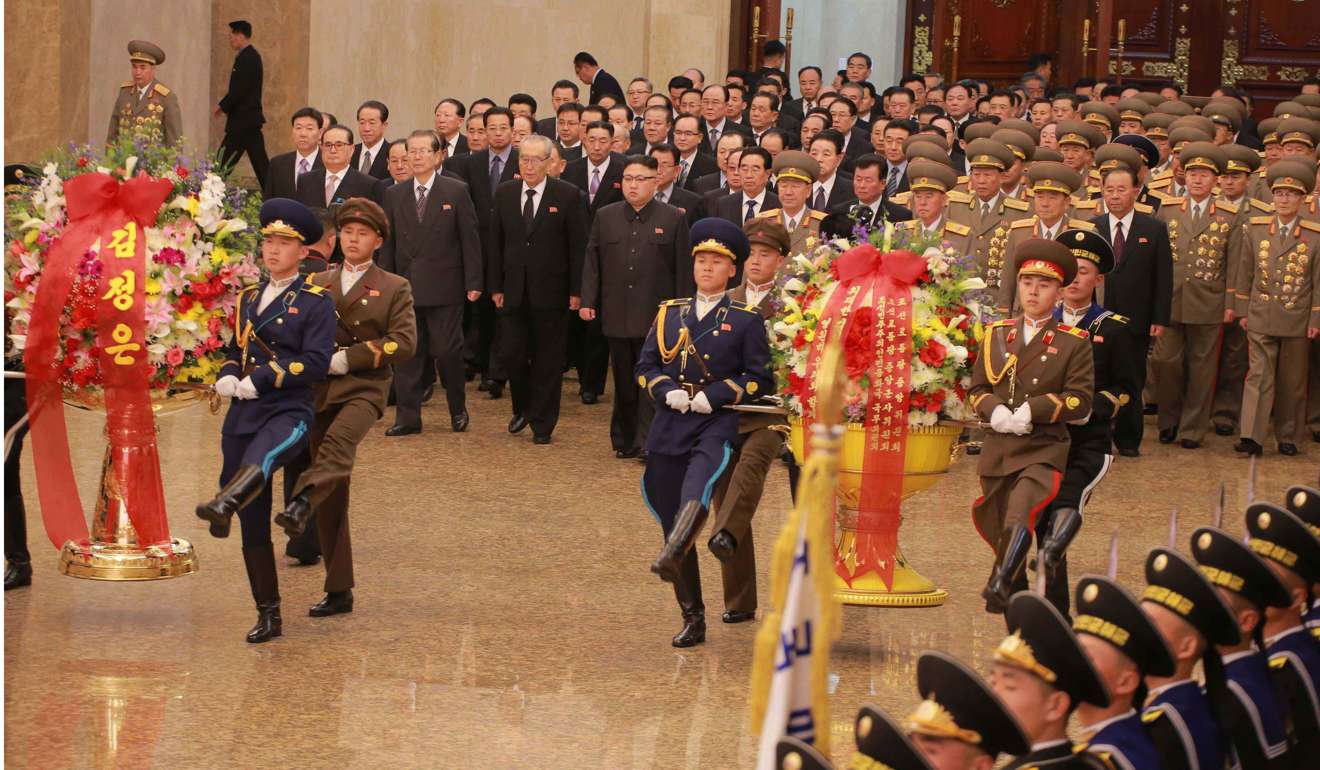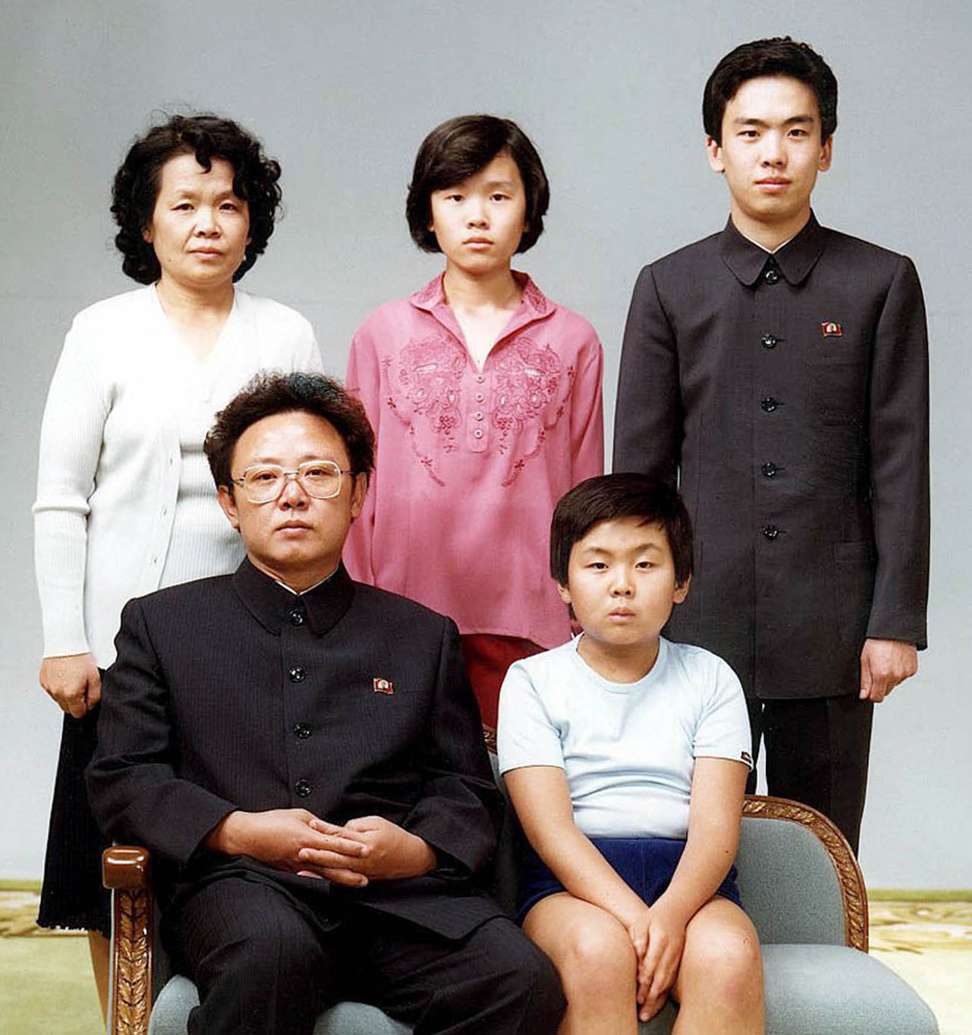
China turns the screw on North Korea with its coal ban, but will the tough restrictions last?
Donald Kirk considers how the murder of Kim Jong-nam complicates Beijing’s already strained relations with the isolated North Korean regime

The acronym LOL, or “laugh out loud”, now symbolises the killing of 45-year-old Kim Jong-nam for which the North Koreans are widely believed responsible. The Chinese are showing their outrage over the assassination – and North Korea’s test of a new mid-range missile – in their startling refusal to accept more coal imports from the North at least until the end of this year.
Korean Peninsula set to become more volatile after China stops buying coal from North
China appears determined to maintain this harsh restriction – in line with UN sanctions but more emphatic than expected – despite the risks to the North Korean regime. Although China has often emphasised the need for “stability” on the Korean peninsula, it is clearly fed up with Kim Jong-un’s nuclear-and-missile programme, amid a non-stop purge of his enemies, but will it really risk the calamity that might befall his regime if he no longer has the financial resources to maintain control?
Why does everybody assume Kim Jong-un killed his brother?
The Chinese, to be sure, could not have seriously contemplated a show of force, or a staged uprising in which the older half-brother would replace the younger in the seat of power in Pyongyang.
Still, the existence of Kim Jong-nam, the son of an actress who died in Moscow in 2002, was a constant reminder that China might favour him despite his reputation as a playboy and a gambler, whose first wife and child live near Beijing.
Assassinated North Korean Kim Jong-nam’s former life as prince of a hermit kingdom in Macau
Revealed: prison where North Korean dictators send troublesome relatives
The fact that Jong-nam had granted interviews saying he doubted if his brother would last long in power and that he didn’t approve of “dynastic rule” was reason enough for his kid brother to hate him.
Even if he adheres to his stated desire to be able to order the destruction of targets in the US, Kim Jong-un has to be worried
But is there any chance China will be able to compel North Korea to abandon its nuclear programme, including its quest for the means to attach a small warhead to an intercontinental ballistic missile?
Even if he stubbornly adheres to his stated desire to be able to order the destruction of targets in the US, however, Kim Jong-un has to be worried. Did the news that China had just turned back a large shipment of coal explain why he was scowling at lavish observances in Pyongyang marking the 75th anniversary of his late father’s birth?

South Korea: no delay for THAAD missile deployment, despite Beijing’s objections
The real question, though, is whether China will maintain such tough restrictions. In recent years, Beijing has seemingly approved UN sanctions while Chinese and North Korean traders have gone right on doing business across their common border. China, still the source of all North Korea’s oil and half its food, had previously held out against stopping the coal imports needed for the North’s survival.
Much will depend on the evolution of China-US relations. China has objected mightily to the US plan to install, inside South Korea, a THAAD anti-missile battery capable theoretically of shooting down an enemy missile 150km above the Earth’s surface. Over US disclaimers, the Chinese insist THAAD, or Terminal High-Altitude Area Defence, could just as well be aimed at China as at a North Korean missile.
The Chinese will also be watching warily to see if President Trump will make good on his campaign vows to combat China’s overwhelming trade surplus with the US by imposing protective tariffs. Does Trump himself know how, or if, he will live up to his bold words?
The sequence from the North Korean missile test and the assassination of Kim Jong-nam, to the suspension of North Korean coal imports, opens a new act in the drama of China’s role on the Korean peninsula. In a contest for regional power and influence, the denouement remains a mystery.
Donald Kirk is the author of three books and numerous articles on Korea


